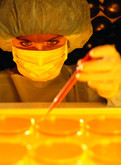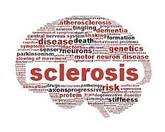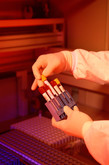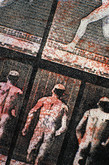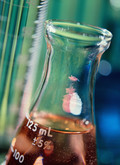Biosimilars
FDA definitions of generics and biosimilars
Confusion surrounding terms used in the global field of generics and biosimilars is a recognised problem.
The source of some of this confusion is due to authorities in various regions of the world defining terms differently and other instances are due to a misunderstanding of the actual nature, characteristics, and method of research and manufacture of these biological products.
US biosimilars: many barriers to overcome
EMA has been successful in devising a system for authorising the marketing of biosimilar products and 14 biosimilars are currently on the market in the major countries of the EU [1]. Generally, biosimilars are priced about 30% less than the originator product. This seems to be sufficient to gain significant (~ 30%) market share in a year or two though it keeps biosimilars very expensive. This is in dramatic contrast to the situation in America. In 2010 the ‘biosimilars statute’ (BLA) eventually came into force as the result of the Patient Protection and Affordable Care Act. The proposed rule involves two particularly onerous requirements that the EU process avoids.
The first is the question of degree of similarity.
Natco snaps up biosimilars: signing deal with Mabxience
Indian generic drugmaker Natco Pharma announced that it had entered into an exclusive agreement with Mabxience, the biosimilar division of Swiss firm Chemo Sa Lugano, on 19 September 2011.
The controversies surrounding biosimilars
It is well known that the introduction of similar biological medicinal products, or biosimilars, has caused not a little controversy in the medical world. The aim of healthcare providers/payers, either healthcare authorities or insurance companies, is to reduce the healthcare budget has risen in recent years through the introduction of expensive companion diagnostics, devices, and drugs. At the present moment this can only be achieved in two general ways: either the availability of therapies must be restricted from the patients who would benefit from them, or otherwise the costs of the procedures and drugs must be reduced to within affordable limits so that the majority of patients can benefit from them.
Battle rages over anti-thrombotic medicine
Sandoz/Momenta are ahead again in the fight for the lucrative anticoagulants market in the US. According to IMS Health data enoxaparin sodium injection is the best-selling hospital medicine in the US, and has been described as the ‘gold standard’ for anti-thrombotic treatments. Lovenox, sanofi-aventis’ reference product, recorded US sales of US$2.7 billion in 2009 and has been used to treat an estimated 200 million patients worldwide since it was launched.
Merck acquires follow-on Copaxone NBCD: determined to lead in MS
Germany-based Merck already markets its own multiple sclerosis (MS) drug Rebif (interferon beta-1a) but suffered a major blow during 2011 when regulators on both sides of the Atlantic rejected its oral MS treatment Movectro (cladribine). Merck has since abandoned the project.
Can biosimilar manufacturers learn from generic substitution issues
The substitution of generic prescription medicines for branded medicines is practiced in most Westernised countries, mainly because of its clear economic benefits. Patient experiences of generic substitution are mixed however, with many patients left confused or suspicious [1]. Given that a number of second-generation biosimilar compounds are expected to be approved within the next few years, and that biosimilar manufacturing costs are much higher than those of a simple generic, it is crucial for biosimilar manufacturers to avoid the uncertainty and mistrust that often accompanies generic substitution. Several recommendations have been made to help ensure that substitution pathways are streamlined and successful [1] but can any of these recommendations be applied to biosimilars?
US biosimilars: a report on FDA progress
This article reviews the steps being taken by FDA to implement the Biologics Price Competition and Innovation (BPCI) Act of 2009, enshrined in law in 2010 as the ‘biosimilars statute’.
US$1 billion for cancer R & D
GE Healthcare, the health business of General Electric, provides advanced cancer diagnostic and molecular imaging capabilities, as well as technologies for the manufacture of biopharmaceuticals and for cancer research. Its presence at the European Multidisciplinary Cancer Congress 2011 in Stockholm indicated its commitment to strengthening cancer diagnosis and care. Similarly at the 53rd Annual American Society for Radiation Oncology Meeting in Miami Beach, Florida, USA, it was showcasing a number of new tools designed specifically for the needs of radiation oncologists.
Development of biosimilars is not an easy matter
By 2020 biological products with sales of around US$23 billion in the EU and US$29 billion in the US will be exposed to biosimilar competition [1]. As more and more biologicals lose their patent protection, it is no wonder that Big Pharma, the biotechnology industry and generics manufacturers, as well as regulatory agencies, are becoming increasingly interested in biosimilars [2].
